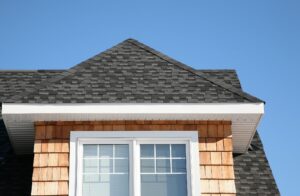
If you’re a homeowner, one of the most important investments you can make is in your roof. It’s essential to keep your roof in good condition, but it can be a costly expense. Fortunately, there are several financing options available to help you cover the cost of your roof repairs or replacement. In this blog post, we’ll take a look at the four best roof financing options for homeowners.
Traditional Bank Loans
Traditional bank loans are a popular way for homeowners to finance their roof projects. Whether you’re getting a new roof, roof repair, or roof replacement, a bank loan is often the most common form of roof financing.
Before applying for a loan, it is important to shop around and compare offers from multiple lenders. Make sure to read the fine print and understand the terms of the loan before signing any documents.
When selecting a bank loan, homeowners should keep in mind the duration of the loan as well as the interest rate. Some banks may offer longer repayment periods with lower rates than other lenders, so be sure to compare your options.
In addition to your loan application, you may need to provide financial statements, credit history, proof of income, and other documents. You may also be required to hire a licensed roofing contractor to do the work, so make sure that you factor this into the cost of your project.
Finally, once your loan is approved, you will need to make monthly payments until it is paid off. Bank loans are a great way for homeowners to cover the costs of a new roof, roof repair, or roof replacement, but make sure to do your research and understand the terms before committing.

Home Equity Loans
Home equity loans can be a great option for homeowners who need to finance a new roof, roof repair, or roof replacement. Home equity loans are loan products that allow you to use the equity in your home to finance major purchases. In this case, you would use your home’s equity to pay for the cost of your roofing project.
The main advantage of a home equity loan is that it allows you to borrow against the value of your home. This means that you will be able to access more capital than other financing options such as traditional bank loans. Additionally, since the loan is secured by your home, you will likely be able to obtain a better interest rate than you would with an unsecured loan product.
One important thing to keep in mind when considering a home equity loan for roof financing is that your home will serve as collateral for the loan. This means that if you fail to make payments on the loan, your home could be at risk of foreclosure. Therefore, it is important to only take out a loan amount that you are confident you can repay.
When it comes time to find a roofing contractor, make sure to shop around and compare prices between several contractors before committing to any particular project. This will help ensure that you get the best deal possible on your roof financing.
Personal Loans
Personal loans are a great option for roof financing as they are easy to obtain and usually have competitive interest rates. The biggest benefit of a personal loan is that it is not tied to any assets like your home or car, so you can use the money however you choose. Personal loans are especially helpful if you need a lump sum of money for a new roof, roof repair, or roof replacement project.
When considering taking out a personal loan, you should compare multiple lenders to find the best interest rate and repayment plan. It is important to understand what you are getting into and make sure you can keep up with payments. Once you have secured a personal loan, make sure to hire a reputable roofing contractor that you trust to do the job. Make sure to get multiple bids to ensure you are getting the best price for your roof financing project.
Government Loans
There are a variety of government programs available to assist homeowners with roof financing. Many programs are specifically designed to help homeowners purchase and install a new roof or to finance roof repairs and replacements.
For example, the US Department of Agriculture (USDA) offers a program called the Section 504 Home Repair program that provides loan assistance to low-income homeowners for necessary home repairs, including roof financing. The loans are repaid over 20 years with no down payment and competitive interest rates.
The Federal Housing Administration (FHA) also provides a Roofing Warranty Program that can help homeowners finance a new roof or repairs to an existing one. The warranty is provided by an approved FHA contractor and covers any defects that may arise from faulty workmanship or materials for up to 10 years.
Other government-sponsored programs include the Energy Efficient Mortgages (EEMs) program from the Department of Housing and Urban Development (HUD) and the Home Energy Renovation Opportunity (HERO) program from the Internal Revenue Service (IRS). Both programs allow homeowners to finance energy-efficient renovations like new roofs, as well as energy-saving equipment like solar panels, on their homes.
For more information on roof financing options through government programs, it is important to check with local, state, and federal resources. Additionally, researching roofing contractors in your area and asking them about available financing options is always a good idea before making any final decisions.
